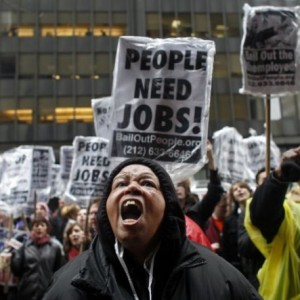Mounting Unemployment in America: Over One Million UI Claims for 27 Straight Weeks, Unprecedented US Economic Collapse

Nothing remotely like what’s gone on since January ever happened before in the US.
For the 27th straight week, over one million working-age Americans filed claims for unemployment insurance (UI).
Numbers for the past week include 870,000 who applied for regular state UI, along with another 630,000 applying for Pandemic Unemployment Assistance (PUA) — the federal program for workers not eligible for UI.
Providing up to 39 weeks of benefits, PUA expires at yearend.
Because most states provide 26 weeks of UI, many unemployed US workers exhausted their benefits.
They’re still eligible for 13 additional weeks of Pandemic Emergency Unemployment Compensation (PEUC) — available only for individuals who got state UI.
Beginning next week, as UI claims fall, PEUC claims will rise proportionately — total claims remaining at Great Depression levels with no congressional or White House programs proposed to turn things around ahead of November 3 elections.
Because reports on PEUC claims are delayed, they won’t show up until October 8.
Economist John Williams calculates economic data based on how done pre-1990 — before formulas were changed to distort reality.
His data show annualized inflation in August at 9%, not the phony 1.3% Bureau of Labor Statistics year-over-year figure.
Americans who buy food, pay rent, service mortgages, cover medical expenses, heat and/or air condition homes, and manage other daily expenses know more about inflation than TV talking head economists and government ones involved in distorting official data.
US unemployment is 28% — greater than the peak Great Depression figure — not the phony 8.4% BLS figure.
Williams forecasts continued hard times, saying “economic and systemic…collapse…should intensify” ahead, adding:
“Systemic turmoil is just beginning, with the Fed and US government driving uncontrolled US dollar creation, with annual money supply growth soaring to successive record highs.”
He sees a “continuing, rapidly deepening…US economic collapse…a hardening, protracted L-shaped recovery.”
Mass layoffs continue, affecting public and private workers.
In early September, Chicago Mayor Lori Lightfoot said layoffs of city workers are needed because of a projected FY 2020 $1.25 billion budget shortfall.
Without further elaboration, she said action must be taken because vitally needed federal aid isn’t forthcoming.
Large tax increases are also coming to deal with the largest budget shortfall in city history, Lightfoot saying:
“We can’t ask individual taxpayers to give us more if we don’t prove to them that we are being good fiduciaries of their tax dollars and that includes making painful sacrifices.”
In mid-September, Illinois Governor Jay Pritzker said “(w)e’re literally talking about thousands of people who will get laid off” statewide.
Illinois is projected to have a $3.4 billion FY 2020 budget shortfall.
According to the Florida Legislature’s Office of Economic and Demographic Research coordinator Amy Baker on September 10, budget shortfalls of $3.4, $2.0, and $1.0 billion are expected in 2020 through 2022 respectively, layoffs required to deal with them.
Chicago, Illinois, and Florida aren’t alone.
US states, cities and local communities nationwide are hard-pressed financially because of dire economic conditions with little or no federal aid in prospect.
According to the National Association of State Budget Officers:
“(S)tate revenue forecasts for fiscal 2021 (and fiscal 2022 for those states that have released estimates) are projecting more significant losses, especially without additional federal aid.”
Moody’s Analytics estimates that US state budgets could experience a fiscal shock (worsened by increased Medicaid expenses) of nearly $500 billion through 2022.
If significant layoffs of public and private workers increase ahead, US unemployment could spike much higher.
A vicious circle exists. As layoffs rise, federal, state, and local tax revenues fall that could result in further job losses and greater economic decline without significant federal aid and job-creation programs like during the Great Depression to put people back to work.
*
Note to readers: please click the share buttons below. Forward this article to your email lists. Crosspost on your blog site, internet forums. etc.
Award-winning author Stephen Lendman lives in Chicago. He can be reached at [email protected]. He is a Research Associate of the Centre for Research on Globalization (CRG)
His new book as editor and contributor is titled “Flashpoint in Ukraine: US Drive for Hegemony Risks WW III.”
http://www.claritypress.com/LendmanIII.html
Visit his blog site at sjlendman.blogspot.com.

